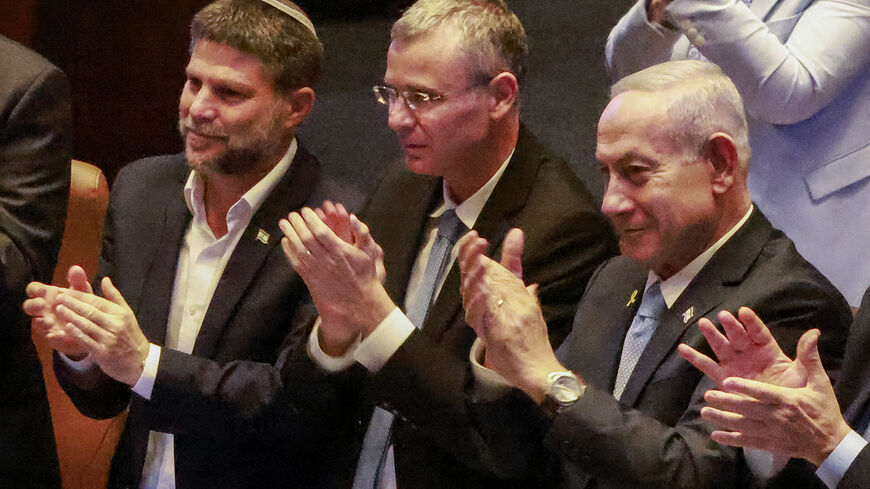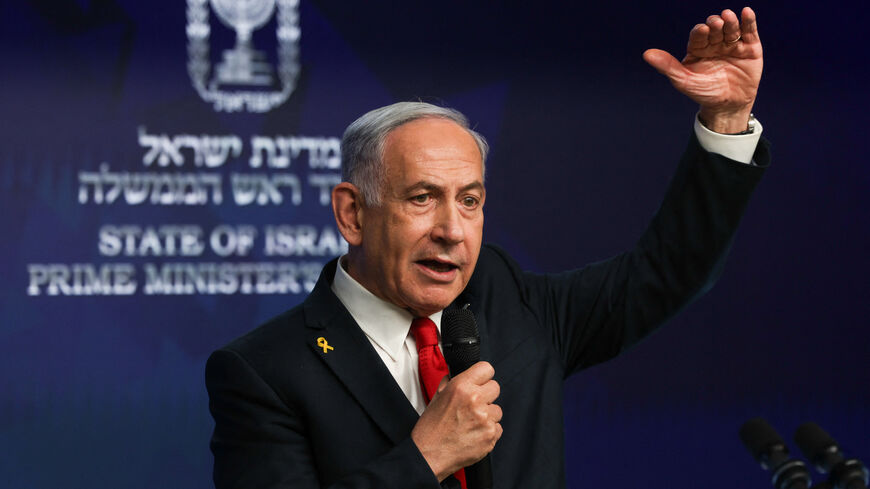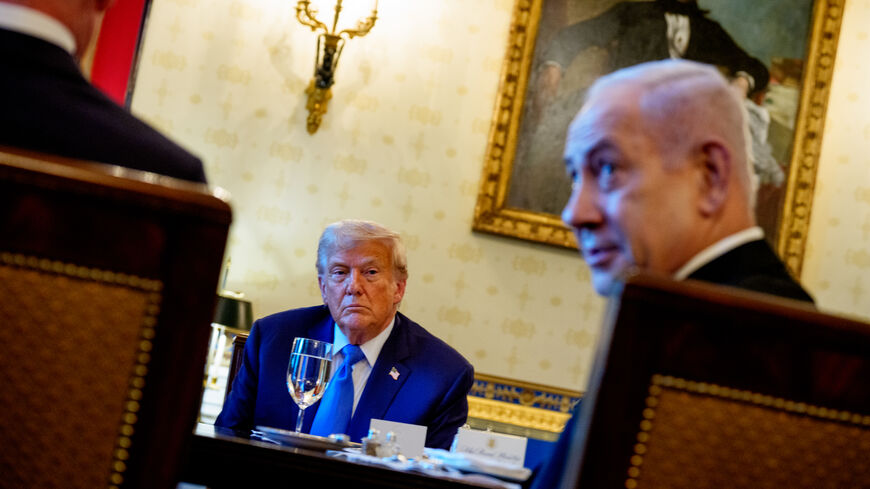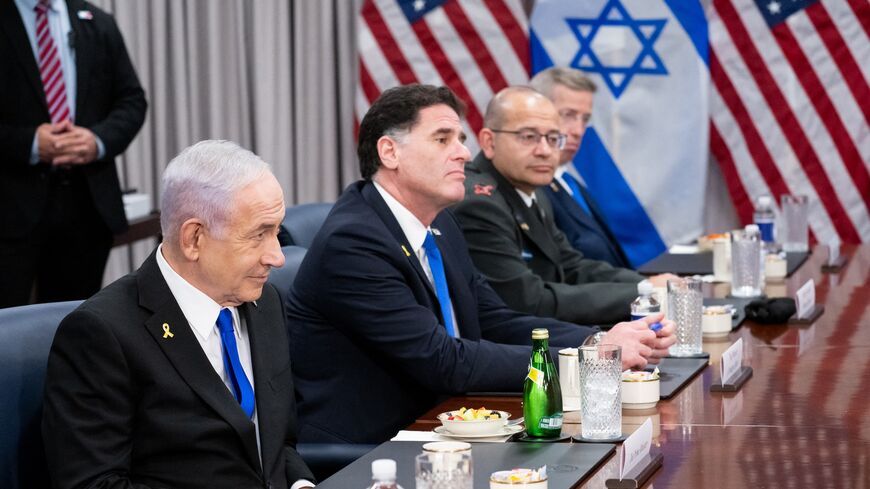Iran talks, Gaza war set to dominate Netanyahu-Trump meeting
President Donald Trump is set to host Prime minister benjamin Netanyahu at the White House, where they are expected to focus on Iran as well as Gaza ceasefire talks.
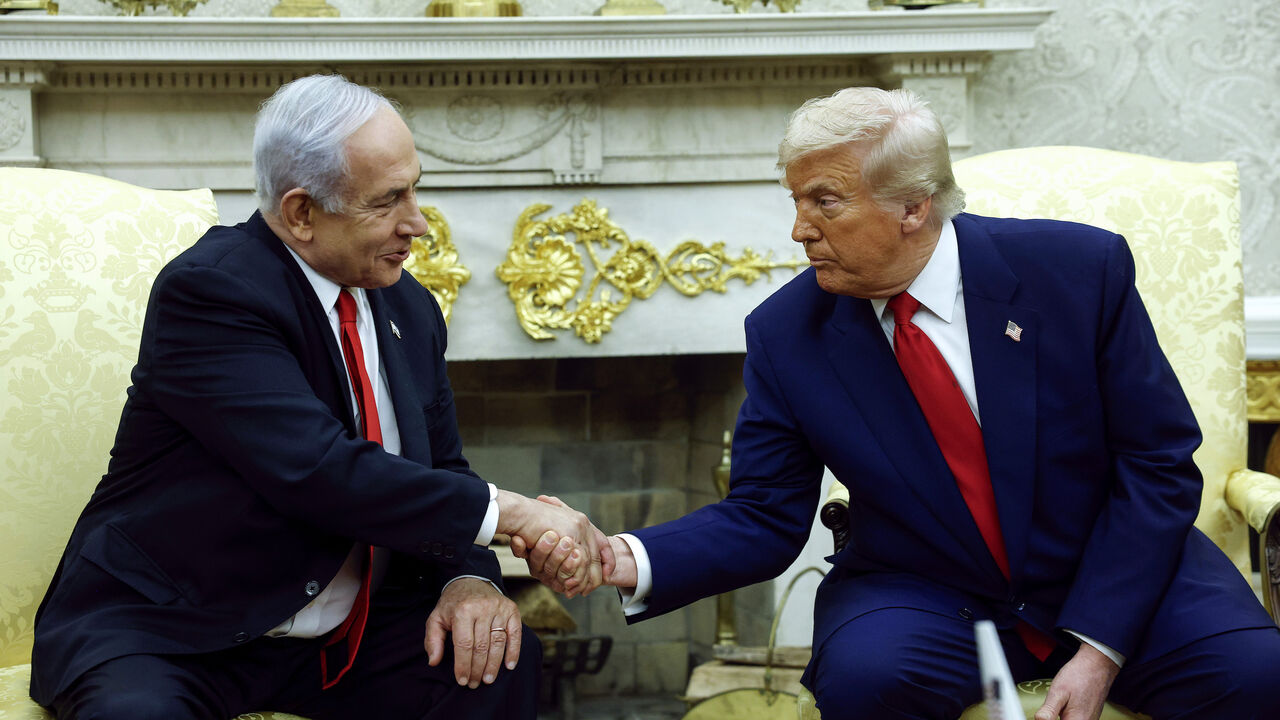
Prime Minister Benjamin Netanyahu is set to meet with President Donald Trump at the White House Monday evening as Israel and Hamas continue mediated talks in Doha for a Gaza ceasefire deal and Iran signals readiness to return to negotiations.
The two leaders are also expected to coordinate on the next steps after Israel's US-backed 12-day campaign against Iran. Netanyahu's visit — his third during Trump's second term — follows the two declaring victory over Iran's nuclear enrichment program and as Israel's war in Gaza continues to grind on.
Another expected topic is that of talks between Syria and Israel for a possible security agreement.
Family members of hostages held in Gaza are planning to gather outside the White House before the meeting between the US and Israeli leaders to urge the sides to quickly reach a deal for the release of all the hostages.
Netanyahu’s schedule
The Israeli premier landed at Andrews Air Force Base early on Monday morning for meetings with Trump and senior advisers on national security.
On Monday afternoon, the Israeli leader is expected to meet with Secretary of State Marco Rubio and US special envoy to the Middle East Steve Witkoff ahead of his meeting with Trump. Trump will host Netanyahu for dinner, according to a schedule provided by the White House.
According to Netanyahu’s office, he is set to meet with Vice President JD Vance and senior Congress members on Tuesday. Netanyahu will then meet with US defense chiefs including Defense Secretary Pete Hegseth at the Pentagon.
In the evening, he will participate in a reception honoring the strong ties between the two countries. Leaders of the American Jewish community, the evangelical Christian community, senior members of the Trump administration and people close to Netanyahu are expected to attend. The Israeli premier will head home on Thursday evening.
Israel-Hamas talks resume in Doha
The first round of mediated talks between Israel and Hamas ended in Qatar Sunday night without a breakthrough, Reuters reported, citing Palestinian sources. According to the report, the Israeli delegation did not have a large enough mandate to conclude a deal. The Israeli side has not commented so far on the talks. Before leaving for Washington on Sunday, Netanyahu said, "We are determined to ensure that Gaza no longer poses a threat to Israel. It means one thing: the elimination of Hamas' military and governing capabilities. Hamas will not be there."
Axios reported on Sunday that Trump wants to reach an agreement with Netanyahu on terms for ending the war in Gaza and cited two unnamed American officials as saying that the day after the Gaza war will be a central topic.
Israel and Hamas are negotiating a Qatari proposal that resembles the outline Witkoff put on the table at the beginning of March. It sees a 60-day ceasefire, during which the sides will negotiate the next phase, which will entail the end of the war and Israel's full retreat. During the two-month ceasefire, Hamas will release 10 living hostages in two phases and 18 bodies of hostages in three phases. Israel will release an undetermined number of Palestinian prisoners. The Israeli military will partially retreat from areas in the north and the south of the Strip. The flow of humanitarian aid will be increased under UN agencies.
The Israeli government has accepted the terms. Hamas said it considers the proposal "positive," but added three conditions concerning the extent of the partial Israeli retreat, the distribution of humanitarian aid and US guarantees that the Gaza war will end. On Saturday night, Netanyahu's office said that Hamas' conditions were “not acceptable to Israel” but that a delegation would nevertheless head to Doha on Sunday.
Axios reported that Israel is more flexible on its prior demand that the leaders of Hamas in Gaza be exiled. It is now willing to settle for the symbolic expulsion of a few senior Hamas military commanders. The Axios report cited an unnamed Israeli official saying, "There aren't many senior Hamas officials left in Gaza." The official said that Israel would consider granting amnesty to lower-ranking Hamas militants who lay down their arms.
Ynet cited Israeli sources as saying that one of the hurdles to an agreement is Hamas' demand that the Gaza Humanitarian Foundation be cut out of the aid distribution process, which would be handled only by UN agencies. Israel and the US have rejected this demand.
Defense Minister Israel Katz said Monday he is optimistic that a 60-day ceasefire will be declared soon. Katz said that Hamas already basically agreed to return 10 living hostages and about half of the deceased hostages, and Israel basically agreed that its military will withdraw from 75% of the Gaza Strip. According to Katz, Hamas now accepts that Israel will maintain control of the Philadelphi Corridor along the border between Gaza and Egypt.
Next steps on Iran
The visit comes as Netanyahu, who remains legally and politically beleaguered at home, hustles to solidify his country’s military gains against its adversaries since the 2023 conflict broke out, particularly Iran.
Speaking to reporters before departing for Washington on Sunday, Netanyahu hailed Israel’s surprise attack on Iran last month and the US assistance as a “great victory over our joint enemy.”
Israeli and American officials have expressed confidence that Iran’s path to a bomb has been significantly degraded by the US Air Force’s June 22 bombing run on Fordow and Natanz, but experts have cautioned that Tehran likely retains at least some nuclear enrichment capabilities. US military officials have also publicly confirmed that Iran still possesses a formidable arsenal of conventional ballistic missiles.
The Pentagon assessed the long-range strikes set back Iran’s nuclear enrichment program roughly one to two years, a spokesperson for the department revealed last week. US defense officials have described the preliminary conclusion as having been at least partly informed by intelligence gathered by US-aligned countries in the region, but have not elaborated on the nature of the intel nor its sources.
Netanyahu is expected to press Trump for answers on what comes next if, for example, the Iranian government refuses to fully comply with UN nuclear program inspectors or if Western intelligence picks up indications that Supreme Leader Ali Khamenei has decided to authorize Iran’s government to obtain a nuclear weapon.
The US president has expressed openness to direct dialogue with Iran, a prospect Netanyahu opposes. He has also openly threatened to launch more intensive US strikes against the Islamic Republic should its leaders fail to reach a diplomatic agreement with Washington to limit nuclear enrichment.
Israel, Syria circle security deal
Israel and Syria have been conducting direct and indirect talks in the past two months on a potential security deal based on the 1974 armistice agreement signed after the 1973 war. US special envoy to Syria Tom Barrack confirmed Monday that the dialogue between Syria and Israel has begun and that "everyone is rushing to reach an agreement." A statement from Barrack after he met with Lebanese President Joseph Aoun read, "We want to see a cessation of hostilities on the Syrian-Israeli border." The issue is expected to be discussed between Trump and Netanyahu, though it is unclear how far talks have gone.
After the fall of Syrian President Bashar al-Assad, Israeli troops entered Syrian territory and took control over the buffer zone along the border and Mount Hermon.
Al-Monitor reported last week that a peace agreement is unlikely to be reached soon because Syrian President Ahmed al-Sharaa is unlikely to compromise on Israel's retreat from the Golan Heights. Israel officially annexed two-thirds of the Golan Heights in 1981. The US is the only country to have recognized the annexation.
Al-Monitor's Jared Szuba also contributed reporting.

